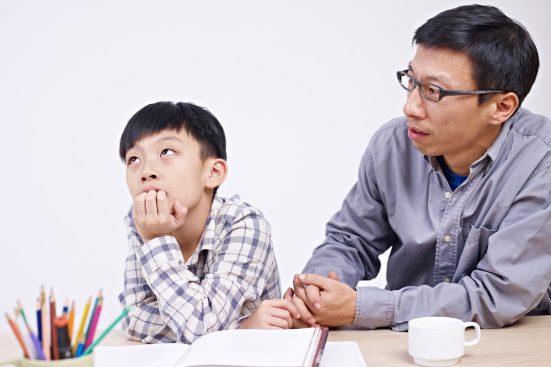Many of those parents remember how their younger kids were happy-go-lucky much of the time. Sure, they’d still get upset at times – if they didn’t get what they wanted or had a fight with their siblings, or had to do chores – they might have a meltdown – but there were three differences:
1. As parents they knew what was wrong
2. There was a clear cause of the problem and after it was over (and the chores done/fight resolved) they returned to being their cheerful/high spirited selves.
3. It was easier for parents to help them feel better. (The promise of an ice-cream/extra story/trip to the beach would usually put a smile on their face.)
But suddenly their children aren’t like this any more.
- They act irritably for no obvious reason.
- They seem overly upset about things which didn’t use to upset them
- They might “sulk” or take a long time to get over things
- Things/situations which used to provide them great pleasure no longer make them happy
- They can’t “fix” it with the promise of a treat/fun activity
What parents often don’t realise is that the kids themselves are just as shocked and dismayed at their bad moods.
As professionals working with preteen children, we need to explain to them three important things.
First, we need to explain to them that most of the time, these negative moods does not mean there is anything seriously wrong with them. In this age of more mental health awareness, some children start to google and self diagnose depression and worry it will get worse.
Second, we need to tell kids that their bad moods are actually the result of them getting smarter, and having more powerful brains. We need to tell them, that as humans, as we get older, we get more agile and powerful brains. This means we are more capable of:
Evaluating life negatively
Comparing ourselves negatively to others
Thinking about what might go wrong in the future
In addition, we have had more exposure to situations as we get older – which means we get less excited about various things that used to have novelty value.
Third, we need to tell growing kids that there’s good news too. Preteens and teens growing brains are ALSO capable of additional good moods compared to when they were younger. These good moods come from situations like:
Being more able than younger children to take great joy in their achievements
Being better able to look further ahead into the future and have a sense of hope about what is coming up for them
Being capable of developing deeper friendships and romantic relationships – and deriving joy and satisfaction from these things
Feeling grateful for what they have (okay, this one takes a little longer,and a little more training – but it does come!)
So the positive moods will come around for preteens – and sometimes when they least expect it.
Getting this information and reassurance will be very powerful for the children you work with and see.
Kirrilie
PS, of course some irritability/stress and negative mood in pre-teens is NOT just part of growing up. We encourage parents to always get an opinion from a health professional if they have ongoing concerns: a great start is with their GP.



